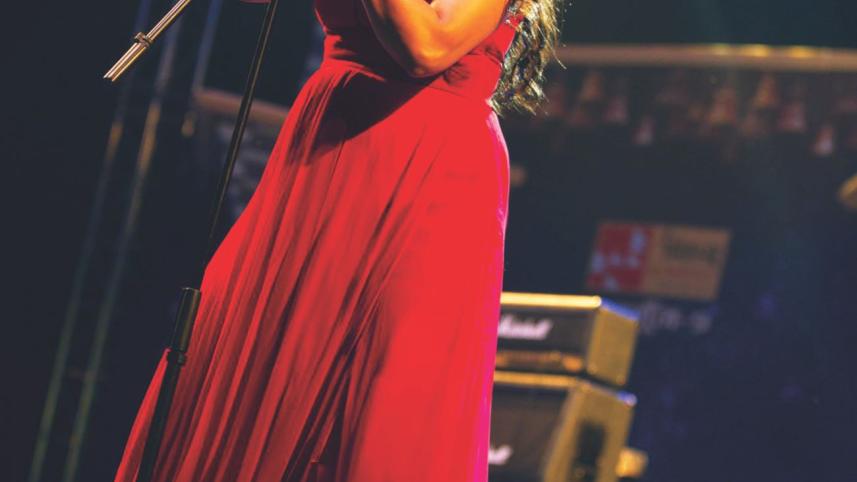On a path of her own

"There's a voice inside my heart, that shows me the path,” a song from her 2006 eponymous debut album “Sona”, roughly translates to in i“Thts opening verse. And the journey of Indian singer Sona Mohapatra is probably best encapsulated in the lyric to this song, “Awaz”. Leaving behind an electrical engineering and an MBA degree and a successful career as a brand manager, Sona's story is of a young, brave girl from the Orissa who followed the call of her heart to hold on to music, and consciously stood outside the mainstream to carve an identity.
The classically-trained artiste instantly created a niche fan base with her debut album, projecting a gorgeous vocal timbre into a range of melodic styles from alternative to Sufi and folk. A natural at expressing emotions, her songs “Abhi Nahi Aana”, “Bolo Na” and “Awaz” displayed intimate lyrical and musical arrangements, while tracks like “Sapne” saw her exuberance in full flow.
She came to the notice of the mainstream, however, with advert jingles of Closeup and Tata Salt. Despite success in playback, her work in Bollywood has been sporadic with tracks like “Bahara” (“I Hate Luv Storys”), “Jiya Laage Na” ( “Talaash”), “Ambarsariya” (“Fukrey”), “Naina” (“Khoobsurat”), and most recently, in “Qatl-e-Aam” (from the upcoming “Raman Raghav 2.0”).
Sona's music has most often been on her own terms, in teamwork with husband Ram Sampath, a composer-music director always looking to stray off stereotypical Bollywood. Sona's desire to stray off the mainstream has resulted in collaborations with Australian rock band INXS (for a version of “Afterglow”) and David Bowie's “Let's Dance” with US producer Nile Rodgers, who produced Bowie's original classic. Her work on the Indian version of Coke Studio has also gained major popularity, with tracks like “Rangabati” where she explores her Oriya roots, collaboration with Carnatic legend Vidushi Aruna Sairam on “Aigiri Nandini” that blends Bulleh Shah kalam “Tere Ishq Nachaya” with the Hindu prayer Mahishasura Mardini Strotam, and “Piya Se Naina”, an Amir Khusro poetry put to a fusion arrangement.
Sona's fiercely independent, feminist side shone through in her work with Aamir Khan's social issue-based programme “Satyemev Jayete”, where she gave voice to heartfelt songs like “Rupaiya”, “Ghar Yaad Aata Hai Mujhe” and “Bekhauf”. But it's not just with music that she expresses herself. Her bold, eclectic and ethnic-inspired fashion statement is one other thing that sets Sona apart from the crowd, as does her social media presence, where she not only shares her life as a musician, but also speaks up on social issues she feels strongly about.
Sona has often mentioned her love for performing live, and has performed over a hundred concerts last year alone, including one with the 100-piece BBC philharmonic orchestra.
In a country where mainstream popular music and artistes are swallowed up by Bollywood and put into their commercial molds, to create and tread a path of one's own is why Sona Mohapatra is special. Or maybe it's because this correspondent, an electrical engineer by degree choosing a profession of journalism, feels a connection that goes beyond just her musical prowess. Whatever it may be, as she turns 40 today, here's hoping Sona Mohapatra continues to be the captain of her own ship for many years to come.



 For all latest news, follow The Daily Star's Google News channel.
For all latest news, follow The Daily Star's Google News channel.
Comments